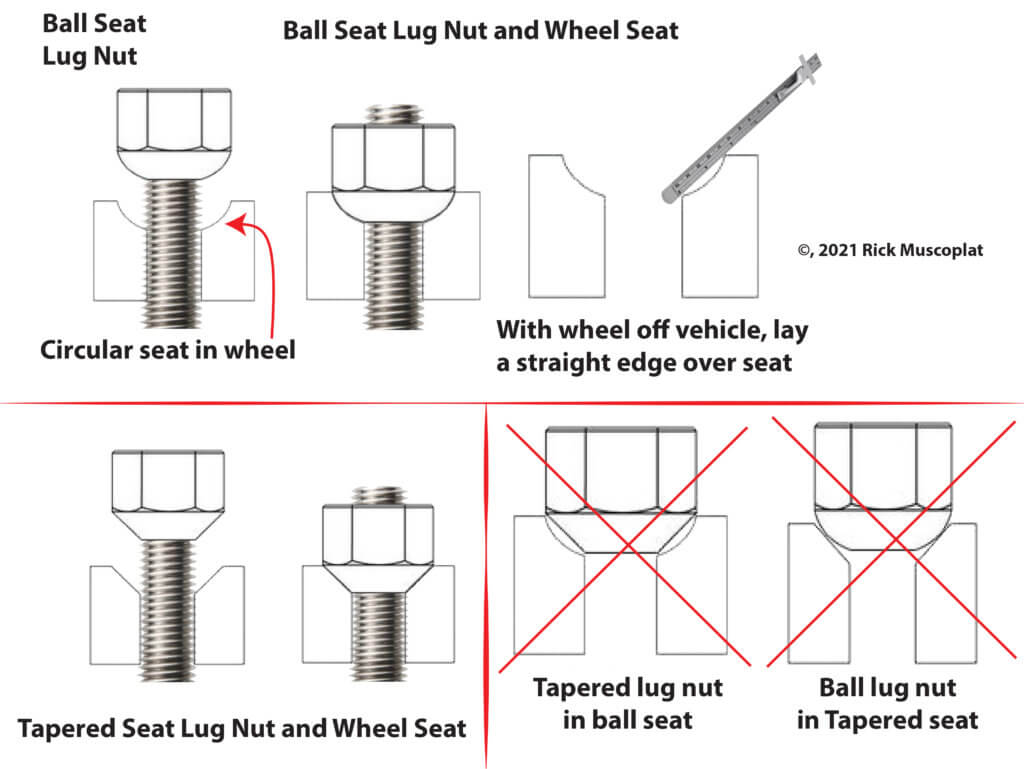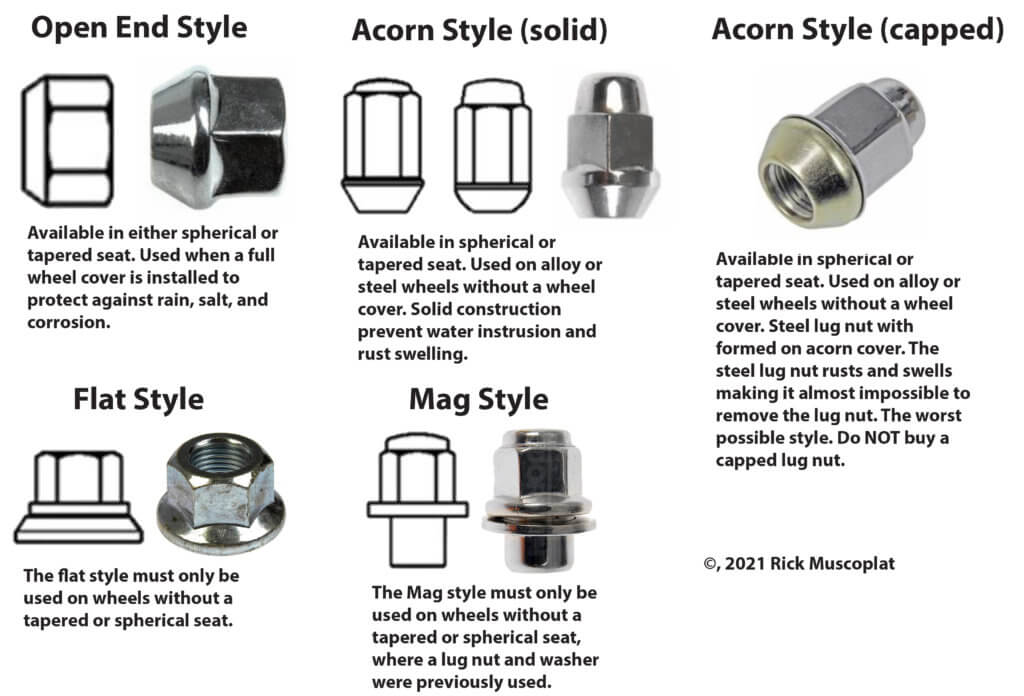4 Lug nut seat types — Choose the right one for your wheels
Learn the difference between the four lug nut seat types
There are four basic lug nut seat types: conical, ball, flat, and mag. If you’re shopping for a replacement, you’ll need to know the wheel stud diameter, thread pitch, and the seat type on your wheels. .
Seat types — conical, ball, flat and mag
Wheels can use a spherical (also referred to as a “ball seat), tapered (also referred to as a conical seat because it’s shaped like a cone), a flat seat, or a mag seat.
The seat on the wheel determines which lug nut you install. In other words, never use a conical nut on a wheel with a ball seat, flat or mag seat, and vice versa.

Flat and mag types
In addition to spherical and conical seat types, carmakers and wheel makers also use a flat or mag style seat. A flat style has a flange that tightens against a mating flat surface on the wheel.
A mag style lug nut has a wider washer that fits into a recess in the wheel.
The difference between open, solid acorn and capped acorn

Lug nut torque
Wheel studs can be damaged by applying too much torque to the lug nut. In addition to stud damage, using the wrong torque or uneven torque can cause lateral runout, which eventually causes brake pedal pulsation. ALWAYS use a torque wrench when tightening lug nuts.
Refer to a shop manual or this link if you don’t know y our lug nut torque specification.
If you can’t find the lug nut torque specification for you vehicle, use this general guide.
Stud Diameter Lug Torque
10 MM Stud 50 Foot Pounds
12 MM Stud 80 Foot Pounds
14 MM Stud 90 Foot Pounds
7/16 Inch Stud 75 Foot Pounds
1/2 Inch stud 85 Foot Pounds
9/16 Inch Stud 140 Foot Pounds
5/8 Inch Stud 160 Foot Pounds
Should you lubricate wheel studs?
Unless otherwise stated in your owner’s manual or a shop manual, tightening specs are DRY specs. NEVER lubricate the wheel studs or nuts unless specifically advised to by the carmaker or wheel maker. Lubricating studs or nuts can cause over tightening and stud breakage.
© 2021 Rick Muscoplat
Posted on by Rick Muscoplat